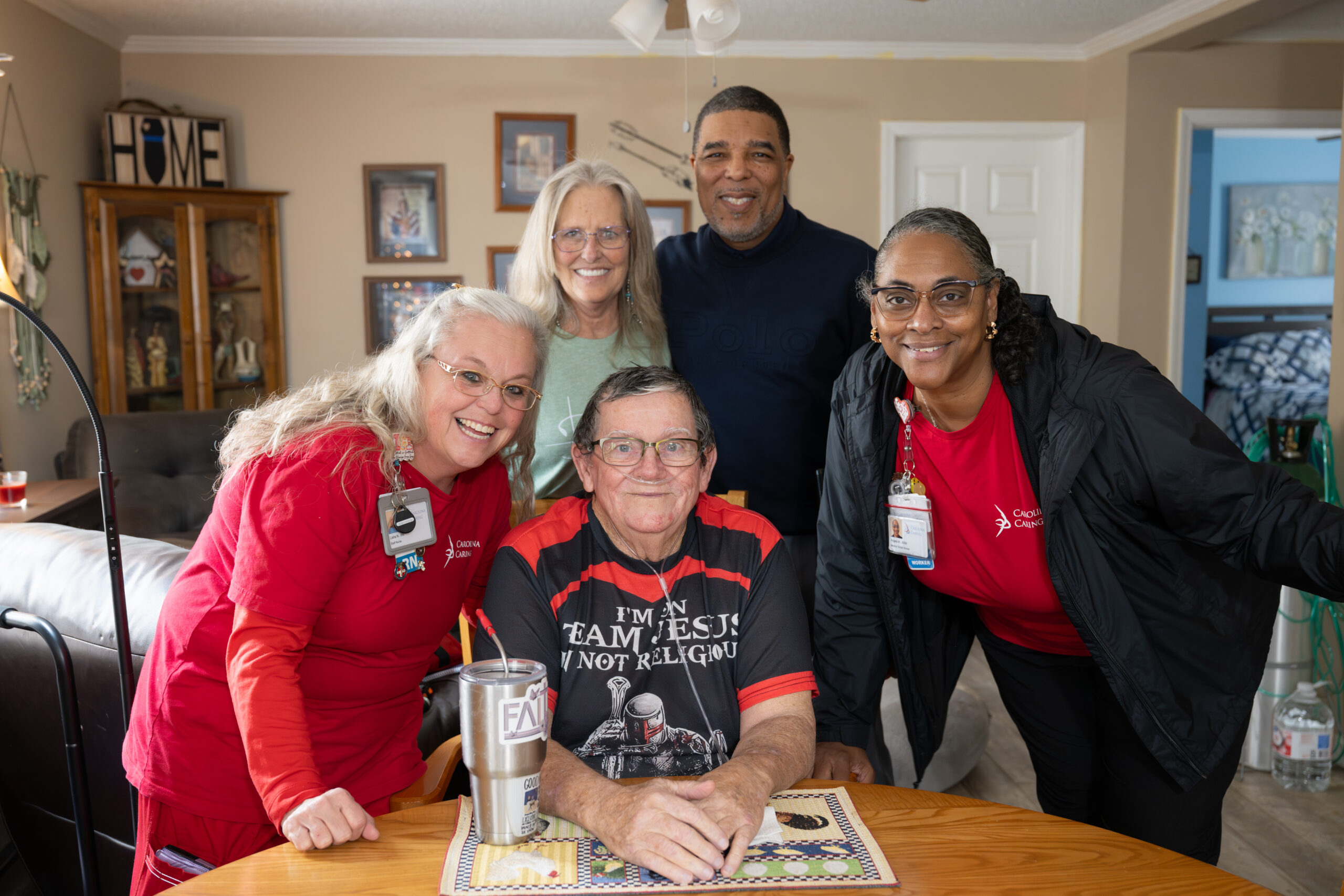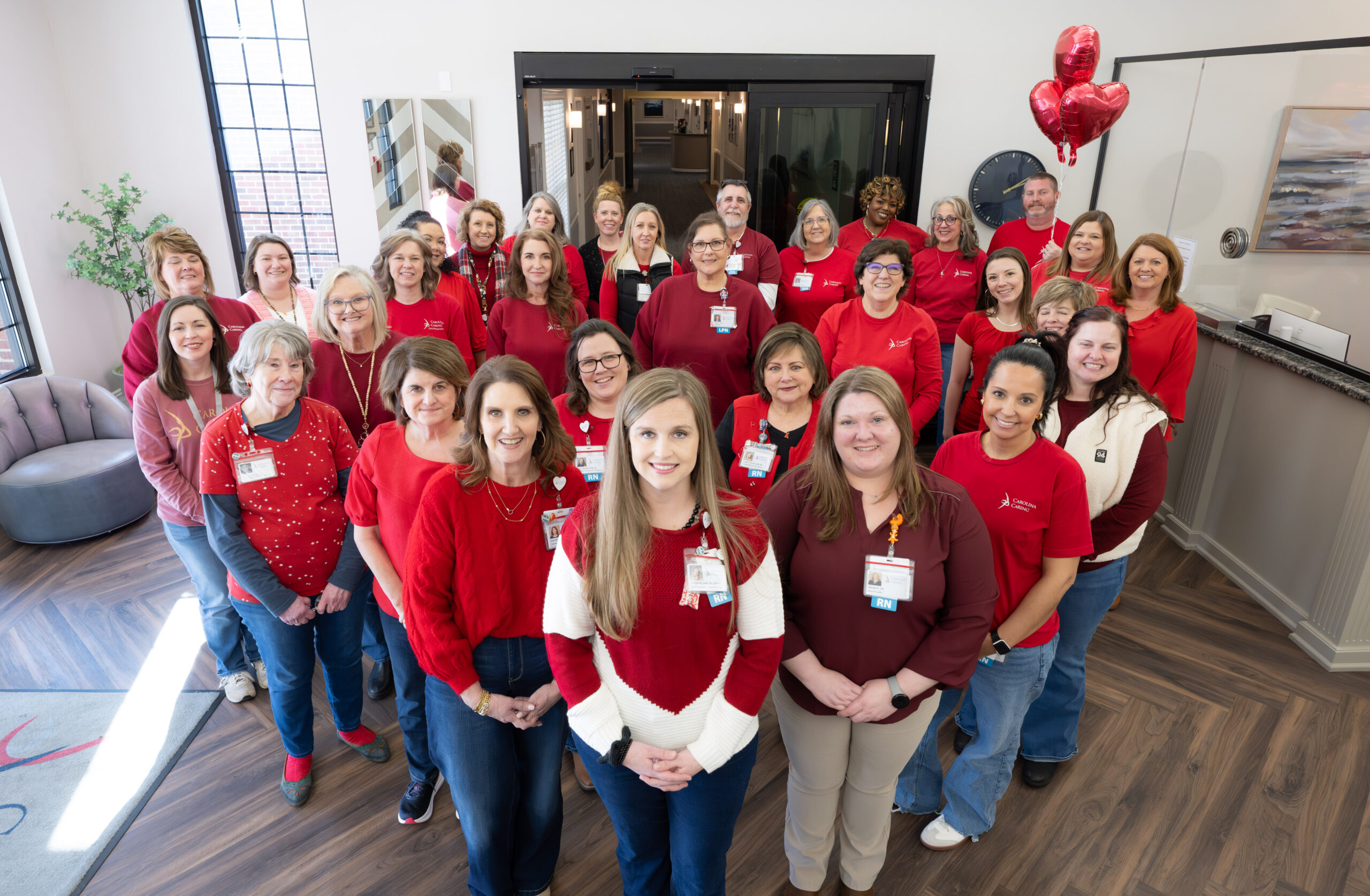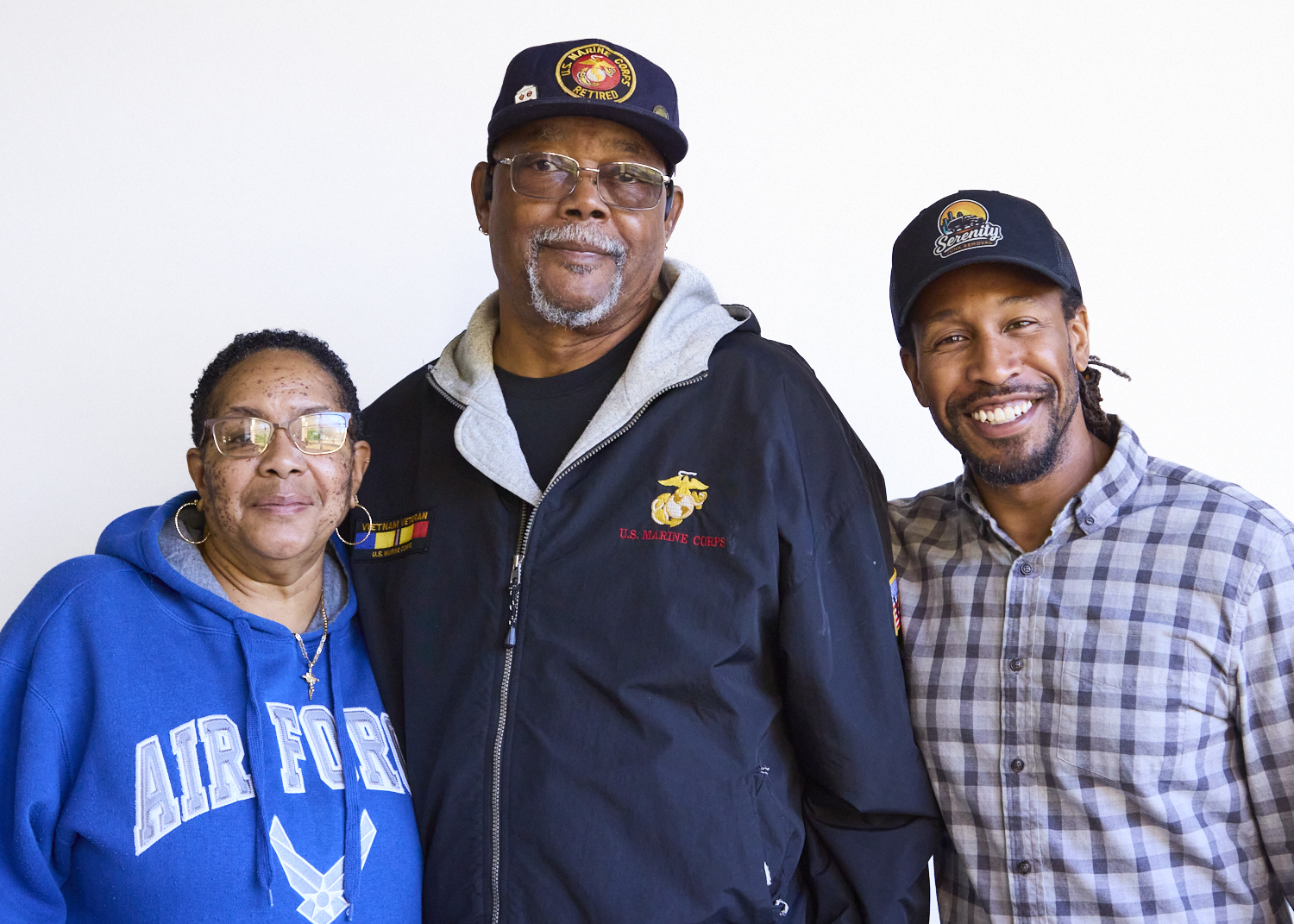Caring for a friend or family member with an illness is an extraordinary act of love, but it can also be extraordinarily stressful. In the U.S., more than 53 million people¹ provide unpaid care to loved ones, and nearly one in three² report mental health struggles as a result.
As a loved one nears the end of life, that strain can intensify. But you don’t have to carry it alone.
Focused on comfort rather than cure, hospice care helps patients live with dignity while also surrounding families with compassionate support, like respite care and grief counseling. In this blog, we’ll explore how hospice supports family members and caregivers through every step of the journey.
Hospice’s Family-Centered Approach
While traditional care often focuses solely on a patient’s medical needs, hospice takes a more holistic approach, treating the patient and their loved ones as one unit of care. This model recognizes that serious illness touches the whole family, not just the person receiving care.
Hospice support for families includes emotional, spiritual, and practical care. This care is personalized for each family and delivered by an interdisciplinary team that may include:
- Physicians, who guide medical care and manage symptoms.
- Nurses, who provide regular visits and support both patients and caregivers.
- Social workers, who offer emotional support and help with practical needs.
- Chaplains or spiritual counselors, for those seeking spiritual care.
- Home health aides, who assist with personal care and give family members a break.
- Volunteers, who offer companionship and help with light household tasks.
Importantly, hospice care doesn’t end with a loved one’s passing. Bereavement support continues for months after a loss, helping families navigate grief with compassion and guidance.
Respite Care Can Give Caregivers Essential Breaks
Hospice respite care is short-term support. Whether it’s for a few hours or a few days, this care allows family members the chance to rest and recharge, all while knowing their loved one is still in good hands.
Hospice provides several types of respite care, including:
- Short-term inpatient respite care: Families can access up to five consecutive days of hospice respite care in a Medicare-certified facility. This gives caregivers time to travel, tend to personal matters, or simply rest.
- Increased aide visits: During particularly challenging periods, hospice can increase the frequency of home health aide visits.
- Volunteer companionship: Hospice-trained volunteers can spend time with the patient, offering conversation and support.
- Continuous care: In crisis situations where symptoms worsen rapidly, hospice can provide around-the-clock nursing care at home.
Accessing hospice respite care is usually as simple as speaking with your hospice team. They’ll work with you to understand your needs and create a plan, whether it’s for a scheduled break or an emergency situation.
At Carolina Caring, we understand stepping away can be hard. Many caregivers feel guilty for needing a break and worry it means they’re letting their family member down. But taking time to care for yourself is essential. Regular breaks allow you to show up more fully for your loved one.
Emotional Support and Counseling Services
It’s normal for families navigating the end-of-life journey to experience a wide range of emotions: sadness, fear, guilt, confusion, and even moments of relief. These responses are completely normal, which is why emotional and spiritual care are a vital part of family hospice services.
Hospice offers a range of professional counseling services tailored to meet families where they are. These include:
- One-on-one counseling for spouses, adult children, and other close caregivers.
- Family therapy sessions to help loved ones navigate shared grief and communicate openly.
- Support groups that connect caregivers with others going through similar experiences.
- Specialized counseling for children and teens, who may need extra guidance to understand and process what’s happening.
- Social worker support to help families cope with stress, manage family dynamics, and access practical resources.
- Chaplain services for those seeking spiritual guidance.
Hospice professionals are also trained to support families through anticipatory grief—the feelings of loss that begin long before someone has passed. This complex emotion can be difficult to name, let alone manage. Having a trusted counselor or social worker to talk to can provide clarity as you prepare to say goodbye.
Practical Support for Families
Caring for a family member nearing the end of life often means stepping into unfamiliar roles. You might find yourself administering medications, learning how to prevent bedsores, or figuring out how to safely help a loved one in and out of a chair. It’s a lot to carry, especially on your own.
Family hospice services are designed to ease that burden. This kind of hospice support for families might include:
- Personalized education on daily care tasks like lifting, bathing, or feeding
- Realistic guidance on what to expect as the illness progresses
- Home safety recommendations to prevent falls
- Hands-on training so you feel equipped for the caregiving journey
In addition to daily care support, caregiver support in hospice extends to the many logistical challenges that can arise. Your hospice team may:
- Coordinate care with doctors, specialists, and other providers
- Assist with insurance matters and help you understand Medicare or Medicaid benefits
- Arrange for medical equipment such as hospital beds, wheelchairs, or oxygen
- Connect with community services like meal delivery, transportation, or respite programs
- Organize volunteer support for light housekeeping or companionship
With the right support, families can focus on what matters most: spending time with each other.
Volunteer Services: Extended Community Support
Hospice volunteers are trained community members who generously offer their time and skills to support patients and families.
As part of family hospice services, volunteers may:
- Provide companionship: Many volunteers simply sit with patients, giving family members the chance to rest or attend to other needs.
- Assist with light household tasks: Volunteers often help with everyday chores such as folding laundry, tidying common areas, and running simple errands.
- Offer specialized services: Some volunteers are trained in areas like pet therapy or music therapy.
- Support behind the scenes: Administrative volunteers assist hospice staff with clerical tasks such as organizing paperwork, preparing mailings, and managing office supplies.
Volunteers complement clinical teams by providing personal support that medical staff may not have the capacity to offer. Many hospices also run specialized programs, such as veteran-to-veteran initiatives, which connect patients with volunteers who share similar backgrounds.
Bereavement Support
Grief doesn’t end when a loved one passes, and family hospice services don’t stop there, either.
Hospice programs typically provide bereavement support for up to 13 months following a death. This extended timeline helps support families through holidays, birthdays, anniversaries, and other milestones when grief can feel especially heavy.
Bereavement services may include:
- Individual grief counseling for family members and close caregivers
- Support groups tailored to different types of loss, such as the death of a spouse, parent, or child
- Memorial services and remembrance events to honor loved ones
- Educational workshops on topics like understanding grief, self-care, and coping strategies
- Regular check-ins from trained bereavement team members
Many hospice programs also extend grief support to the broader community through open support groups, memorial events, and educational workshops. After all, no one should have to grieve the loss of a loved one alone.
Supporting Caregivers and Families in North Carolina
Caring for someone at the end of life is a profound expression of love, but it can also be physically and emotionally demanding. At Carolina Caring, we’re here to help lighten that load, offering caregiver support so you can focus on what matters most: your time together.
Through compassionate family hospice services, we help preserve relationships and create space for meaningful moments. Whether you need a listening ear, guidance through difficult decisions, or a moment of rest through hospice respite care, our team is honored to walk alongside you. And with services reaching families across western North Carolina, help is never far away.
If you’re supporting a loved one through their end-of-life journey, we invite you to reach out. Contact us online or give us a call to learn how our dedicated team can support your family.
Sources
- Centers for Disease Control and Prevention. (2024, September 3.). Public health strategy to support family caregivers. Centers for Disease Control and Prevention. https://www.cdc.gov/caregiving/php/public-health-strategy/index.html
- American Psychological Association. (2020, November 1). Numbers stress caregivers. APA Monitor. https://www.apa.org/monitor/2020/11/numbers-stress-caregivers




